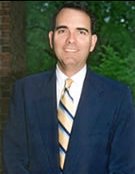Case o' The Week: Bybee's Jewell, US v. Heredia

Judge Bybee (left) takes on the much-abused Jewell "deliberate ignorance" instruction in United States v. Carmen Denise Heredia, __ F.3d. __, Slip. Op. 14529 (Oct. 24, 2005), available here. An excellent decision that should be the centerpiece of any defense challenge to the instruction.
Players: (W.) Bush appointee Judge Jay S. Bybee pens a great decision (a welcome conservative author in a dangerous en banc world).
Facts: Carmen Heredia was stopped at an Arizona Border Patrol checkpoint; riding with her were her mother, aunt, and two of her young children. Slip. op. at 14533. After smelling perfume, a Border Patrol agent referred the car to secondary. Over 349 pounds of marijuana were found in the trunk. Id. The pot was covered with dryer sheets – a method used to conceal its odor. Id. Disputed facts at trial described how Heredia happened to be driving the car. Id. An agent claimed that the defendant admitted, however, that she had smelled the odor and that her aunt had explained that she had spilled Downey. Id. Heredia also said that her mom and aunt were acting strangely as they drove on the interstate. Id. at 14534. She even admitted that she wondered if there were drugs in the car. Id. Over objection, the district court gave the Jewell deliberate ignorance instruction. Id. at 14535.
Issue(s): Was the Jewell instruction warranted, i.e., was there “specific evidence that Heredia actually suspected that she was involved in criminal activity and, if so, that she deliberately avoided taking steps to confirm here suspicions in order to provide herself with a defense[?])” Id. at 14539.
Held: “[W]e conclude that the government failed to provide specific evidence that Heredia deliberately avoided specific steps to confirm or deny her suspicion in order to provide herself with a defense in the event of prosecution. The district court should not have issued the Jewell instruction, and the error is not harmless.” Id. at 14546.
Of Note: Heredia should be the centerpiece of any defense challenge to a Jewell instruction because – as the dissent vigorously observes – there was no small amount of evidence that the defendant actually knew what was up. First, Heredia admittedly was aware of the detergent smell – but Judge Bybee closely examines whether that put her on notice of smuggling. Id. at 14540-41. “Although such odors might alert agents, inspectors, and police who have been trained to detect them, ordinary citizens will not be on alert every time they smell detergent.” Id. at 14541. The Ninth also refused to require the defendant to stop on the shoulder of the interstate to check on suspicions of smuggling: “We doubt that Jewell demands an unsafe act in order to avoid the implications that Heredia deliberately avoided learning the truth.” Id. at 14543-44.
How to Use: “In the years since we decided Jewell, we have restricted the circumstances under which we will permit the instruction to be issued. We have warned that the instruction is rarely appropriate ....The government may not request a Jewell instruction to close the gaps in its case.” Id. at 14537. This language reveals the opinion’s tenor– it is openly skeptical of the hated (by us) wilful blindness instruction. When fighting a Jewell instruction, quote heavily from Judge Kozinski’s helpful dissent. Id. at 14548. He persuasively demonstrates that if Jewell was wrong in Heredia, it must be inappropriate in the vast majority of cases. (A sample Jewell opposition memo is in the ND Cal FPD web page briefbank, available here).
For Further Reading: The investiture of Judge Jay Bybee was on October 17, 2005. Judge Bybee – who sits in Las Vegas – was appointed to replace former Chief Judge Hug. Bybee was a former assistant attorney general at the DOJ. His most notable DOJ legacy is the 2002 memo that defines torture narrowly under federal law, arguing that only pain equal to death, organ failure, or permanent impairment of a significant bodily function rises to “torture.” See article here. The memo also concludes that the U.S. president can order torture. Id. After the prison atrocities in Iraq, the memo (which came to light after Bybee’s confirmation) has been famously controversial. It is, to be fair, unclear whether Judge Bybee or Boalt Law Professor John Yoo was the primary author of the memo. Whatever the case, Heredia certainly strikes a different tone altogether. The judge reportedly wants his headstone to read, “He always tried to do the right thing.” See article here. This decision is a right step towards that epitaph.
Steven Kalar, Senior Litigator N.D. Cal. FPD. Website available at www.ndcalfpd.org

0 Comments:
Post a Comment
<< Home